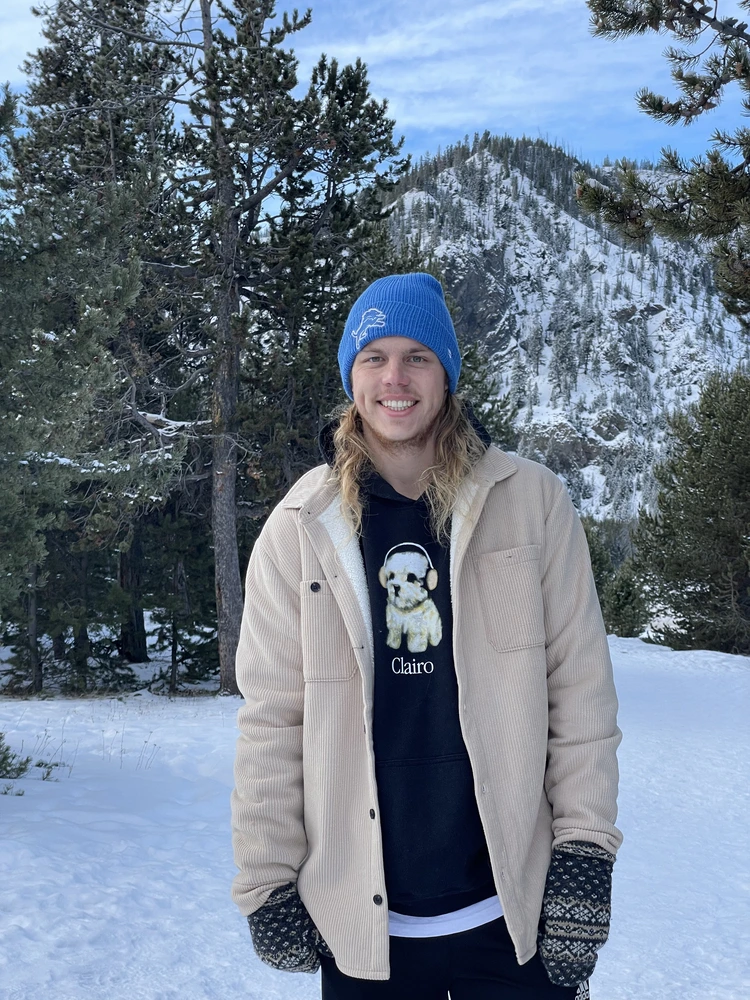

Kevin Crandall is a graduate student in the Department of Philosophy who chose to study philosophy because he wants to make a difference. Understanding how language perpetuates injustice and is used to commit atrocities drives his research. He's particularly interested in how rap lyrics have been used in criminal trials as evidence of intent to commit a crime.
Crandall is also a freelance music and entertainment journalist, with regular publications in FLOOD Magazine and Passion of The Weiss Magazine.
Learn more about his research in the Q&A below.
Why did you decide to study philosophy at Illinois?
Plainly, my reason for studying philosophy is that it seemed like the best way for me to tackle injustices—particularly the evidentiary usage of rap lyrics—with some hope of contributing to their eradication. I chose the University of Illinois to work with Dr. Luvell Anderson, whose work on social language has been a big inspiration in my own research interests and whom has been very supportive of my philosophical aspirations since I first reached out to him for thoughts and feedback on some research I was conducting surrounding his paper “Hermeneutical Impasses.”
Tell us about your research interests. Why are you fascinated by these topics?
My primary research interests are the way language is used socially and institutionally, with a particular focus on how injustices arise through this usage. Language is used to commit atrocities every day, from perpetuating genocides through denial and dehumanization to justifying the kidnapping of (non)citizens via the questioning of tonal inflections and accents in their speech. I want to determine how this occurs, why it happens, and why it is unjust to use language in these ways.
What are you currently working on?
I am currently preparing a presentation of my research on fictive speech acts that I will be presenting at the upcoming Illinois Philosophical Association conference in November. In this project, I’m looking to explain what happens when fictive speech—speech whose content is intended as fictional by the author—is taken to have non-fictional speech commitments. For instance, take a rapper whose fictional lyrics from a diss track are used as evidence that they intended to commit some crime. In this case, the rapper’s fictional speech (the lyrics) is taken to be non-fictional, with prosecutors taking the lyrics to be targeting real life and having real life effects such that they should be taken as evidence of wrongdoing. I am interested in how this change of commitments occurs on the linguistic speech act level, as well as how this can affect the speaker and what they are committed to with respect to their speech. Staying with the example, I am interested in how the fictional lyrics’ speech acts and content change when taken to be non-fictional, as well as how the rapper is affected by this change.
You recently were one of a few graduate students invited to present at a conference on incarceration at Northwestern. Can you tell us about the paper you presented?
The paper I presented at Northwestern’s Carceral Injustice and The Right to be Known Conference is titled “Constitutive Refusal, Discursive Injustice, and Rap on Trial.” The focus of the paper is a phenomenon known as “Rap on Trial,” where rap lyrics and music videos are introduced as evidence of wrongdoing in criminal trials. While my paper focuses on US-based cases, this is an international issue, with documented cases in Brazil and the UK, among other nations. In the paper, I look to motivate a characterization of this practice as a form of injustice that marginalizes the voices of rappers, in particular, but also those who speak an African-American Vernacular English dialect, in general, within the US judicial system. I am very grateful to Micol Bez, Jennifer Lackey, and all the other presenters and organizers for making the event such a success and allowing me to participate and present. I am especially grateful to the students of the Northwestern Prison Education Program for sharing their work, experiences, and generosity, and to Keith Lamar and the Justice For Keith Lamar team for their contributions and fight.
What is your favorite part of life as a graduate student in the Department of Philosophy?
I would say the diverse range of opportunities available to the graduate students to present, get feedback, and explore. There are a variety of reading groups, presentation series, and talk opportunities for us to be able to present and get critical feedback on research that we are doing, regardless of the stage that the research is at. Not only does this allow me to get the thoughts of my colleagues and mentors on my projects, but I am also able to see what everyone in the Department is up to and learn about concepts and areas that are normally outside of my realm of inquiry.